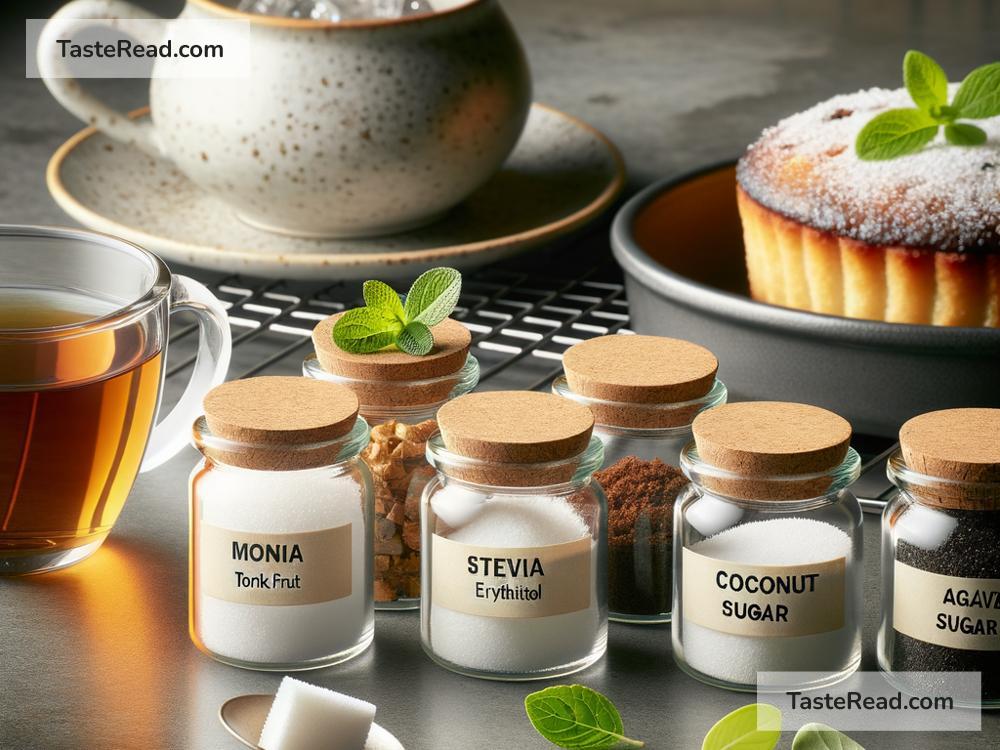The Future of Alternative Sweeteners: Sweetness Without the Sugar
In today’s world, people are becoming more aware of how their diets affect their health. One area that’s been getting a lot of attention is sugar. While sugar makes things taste sweet and delicious, eating too much of it can lead to issues like obesity, diabetes, and heart disease. As a result, scientists and food companies are searching for better ways to make sweet foods and drinks. This is where alternative sweeteners come in—a booming industry that’s changing the way we enjoy sweetness.
Alternative sweeteners are ingredients that provide sweetness without many of the negative effects of sugar. These can be artificial sweeteners, natural sweeteners, or plant-based chemicals. In this blog, we’ll explore the future of alternative sweeteners, how they’re evolving, and why they’re likely to play a big role in what we eat and drink.
Why Do We Need Alternative Sweeteners?
For many years, sugar was king. People used it to sweeten tea, bake cakes, and make candies. But over time, researchers found that eating too much sugar could harm our health. Sugar is high in calories but doesn’t provide essential nutrients, earning it the nickname “empty calories.” It also causes blood sugar spikes, which can be risky for people with diabetes.
Faced with these problems, food producers began looking for ways to replicate the sweetness of sugar without its harmful side effects. This led to the invention of products like artificial sweeteners (such as aspartame and sucralose) and newer natural sweeteners (such as stevia and monk fruit extract).
What Types of Sweeteners Are Popular Today?
There are several kinds of alternative sweeteners available now, and each has its own unique qualities. Let’s review a few:
-
Artificial Sweeteners: These are synthetic compounds that mimic the taste of sugar. Examples include aspartame, saccharin, and sucralose. They’re very sweet—often hundreds of times sweeter than sugar—but have zero calories. However, some people worry about their safety, even though most studies show they’re generally safe to use.
-
Natural Sweeteners: These sweeteners come from plants and are considered a healthier alternative to sugar. Some popular options include stevia (from the stevia plant) and monk fruit extract (from a small melon). They’re low in calories and taste great, making them a favorite for health-conscious consumers.
-
Sugar Alcohols: These are compounds like erythritol and xylitol, often used in sugar-free gum and candy. They’re lower in calories than sugar but still provide a similar taste. Some sugar alcohols can cause digestive discomfort if consumed in large amounts.
-
Novel Sweeteners: These are newer innovations that use technology to create custom sweetening solutions. For instance, companies are developing sweeteners made with fermentation or precision biology, which could pave the way for safer and more sustainable options.
Trends Shaping the Future of Sweeteners
The world of alternative sweeteners is evolving fast, and several exciting trends are shaping its future.
-
Healthier Choices:
As more people try to cut back on sugar, demand for healthier sweeteners is rising. Companies are focusing on creating sweeteners that taste like sugar but don’t cause blood sugar spikes. Natural sweeteners like stevia and monk fruit are expected to become even more popular. -
Personalization:
In the future, sweeteners could be customized to suit individual health needs. For example, scientists might design sweeteners specifically for people managing weight or diabetes, giving them a tailored and safe way to enjoy sweetness. -
Sustainability:
Traditional sugar farming can be tough on the environment, requiring lots of water and land. As climate change becomes more of a focus, future sweeteners may be made using eco-friendly methods like fermentation or lab-grown processes. This could reduce the environmental footprint of producing sweetness for the world. -
Clean Labels:
Consumers are leaning toward foods with simple, transparent ingredients. People are becoming wary of artificial chemicals, preferring natural and recognizable options. In response, companies are investing in sweeteners that come directly from nature or use less processing. -
Tech Innovation:
Some companies are exploring advanced technologies, like using artificial intelligence (AI) to develop sweeteners with perfect flavor profiles. Others are investigating techniques like gene editing to improve the taste of natural sweetener plants.
What Challenges Do Sweeteners Face?
Even though sweeteners are improving, there are still challenges ahead. Some sweeteners have bitter aftertastes, which makes people hesitant to switch. Others face regulatory barriers, needing approval from government agencies before they can be sold.
Price is another issue—some new sweeteners are expensive to produce, making them harder to use widely. Scientists and businesses are working on solving these problems so sweeteners can become as affordable and enjoyable as regular sugar.
What Does the Future Look Like?
The future of alternative sweeteners is bright. Companies, scientists, and food producers are pushing technology to create innovative options that are healthy, affordable, and kinder to the planet. As consumers continue to demand healthier foods, sweeteners will likely play a big role in reshaping the food industry.
In the years to come, it’s possible that we’ll enjoy guilt-free sweetness in more foods and drinks—without worrying about the usual health risks. Whether it’s natural sweeteners like stevia, tech-driven solutions, or personalized options, alternative sweeteners are set to become a major part of our everyday lives.
So, the next time you enjoy a sugar-free soda or snack, remember: sweetness without the sugar is no longer just a dream. It’s the future!


